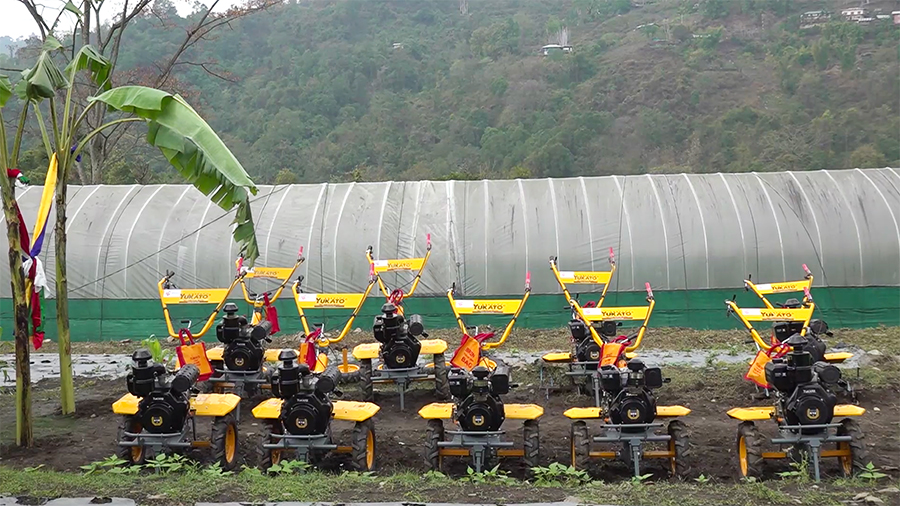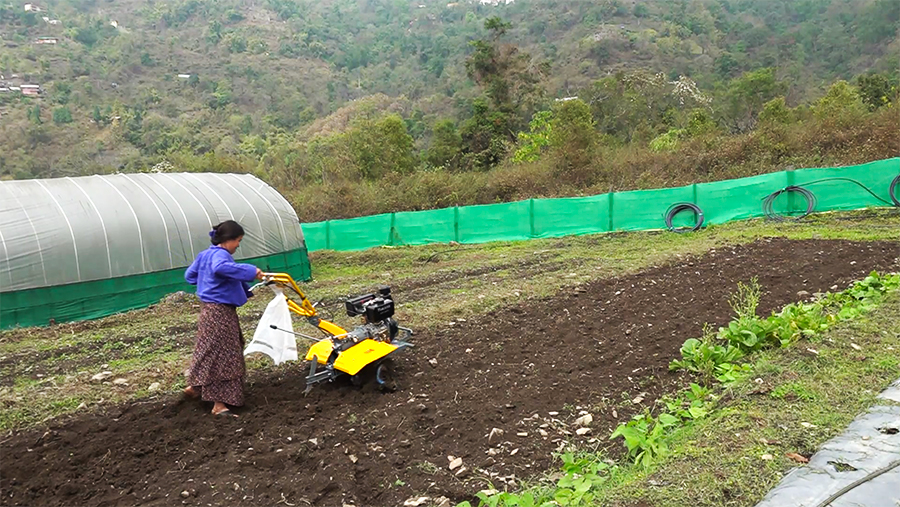 Labour shortages remain a major challenge for farmers in the country. To ease this burden, experienced and trained farmers in Samdrup Jongkhar received mini power tillers under a cost-sharing scheme. The initiative aims to improve farm productivity and encourage mechanisation.
Labour shortages remain a major challenge for farmers in the country. To ease this burden, experienced and trained farmers in Samdrup Jongkhar received mini power tillers under a cost-sharing scheme. The initiative aims to improve farm productivity and encourage mechanisation.
 Through the scheme, 10 farmers who are recognised as “Lead and Progressive” farmers received a mini power tiller each recently. Each tiller costs Nu 86,000 but the farmers have to only pay half the amount.
Through the scheme, 10 farmers who are recognised as “Lead and Progressive” farmers received a mini power tiller each recently. Each tiller costs Nu 86,000 but the farmers have to only pay half the amount.
The initiative supported by Bhutan Foundation and Samdrup Jongkhar Initiative, is expected to benefit at least 150 households in nine villages of five gewogs.
Officials said that since villagers have invested in the machines, they are likely to use them efficiently rather than leaving them idle.
 To ensure proper usage, farmers have been trained in operating the tillers as well.
To ensure proper usage, farmers have been trained in operating the tillers as well.
The 10 beneficiary farmers will also provide power tiller services to other villagers at a minimal charge, making mechanisation accessible across communities.
Kul Bahadur Senchuri, a farmer from Orong Gewog said “Our gewog had only two or three power tillers, which were not enough for the entire village. The new tillers will help us a lot. It takes days to dig fields manually, but with this machine, we can complete the same work in just a few hours.”
Dendup Tshering, also a farmer from Orong Gewog said “We used oxen for ploughing, but now they are hard to find. So, we had to dig our fields manually. Many young people have left for towns, and most villagers are elderly, making manual farming extremely difficult. Now, it is convenient as we can work using power tillers.”
Likewise, Rinchen Nima, a farmer from Langchenphu Gewog said “If we maintain the tillers well, they will last for years. Regular engine and gear oil changes are crucial to prevent damage. With this machine, I plan to expand my vegetable cultivation.”
Besides reducing the workload and increasing efficiency, the initiative is expected to boost food production, improve rural livelihoods, and strengthen food security.
Kinley Wangchuk, Samdrup Jongkhar
Edited by Tshering Zam










